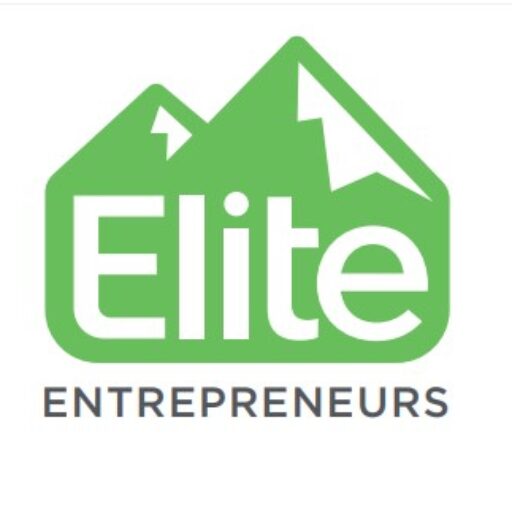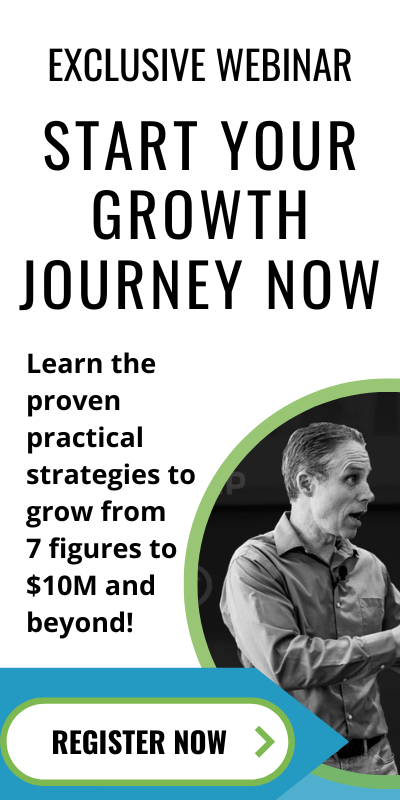Episode 17: Why “Soft Skills” And Strong Relationships Matter, With Eric Sprague & Larry Wilberton
Eric Sprague and his business partner, Larry Wilberton, were college roommates. For 13 years they successfully ranand later sold a seven-figure per year water damage restoration business. Upon the sale of that business, Eric and Larry went to work on their passion project: MorningTechMeeting.com. The website is a monthly membership of daily video training devoted to teaching blue-collar service technicians the soft skills to create better client experiences. Eric is known as the “Tech Whisperer” for his down to earth style which helps him connect with service technicians in a way that they are comfortable with. Eric also coaches blue-collar service business owners and managers to help them build better systems and process flows.
What the podcast will teach you:
- How Eric and Larry went into business together, and how they grew the business they founded in 2008 to seven figures
- How following a marketing plan to the letter without deviating from the plan was the key to Eric and Larry’s explosive growth
- Why finding the right coaches to teach Eric and Larry the skills they needed was vital for their success
- Why hiring and staffing with the right people was one of the major obstacles Eric and Larry ran into on their journey to seven figures
- What important time-saving improvements, cultural changes, and processes Eric and Larry implemented that made a huge difference in their business
- How canceling their daily morning meeting for three weeks caused morale to plummet and caused the employees to mutiny
- Why soft skills are the best way to build a powerful company reputation, and why Eric and Larry moved into teaching those skills to their employees
- Why training their employees in soft skills and how to effectively communicate with customers was the key to scaling the business
- Why relationship-building with their team helped Eric and Larry become better, more effective leaders
- How Eric and Larry’s current business, Morning Tech Meeting, helps business owners outsource their morning meetings
- How to find Eric and Larry’s podcast, Blue Collar Nation, and what topics the podcast series covers
Resources:
- Website: www.morningtechmeeting.com
- Email: larry@morningtechmeeting.com
- Facebook: www.facebook.com/morningtechmeeting/
- Facebook: www.facebook.com/eric.sprague.50
- Facebook: www.facebook.com/larry.wilberton
- LinkedIn: www.linkedin.com/company/morning-tech-meeting/
- LinkedIn: www.linkedin.com/in/eric-sprague-55b16522/
- LinkedIn: www.linkedin.com/in/larry-wilberton-42b13116/\
—
I’m here with Eric Sprague and Larry Wilberton of MorningTechMeeting.com. They are cofounders of that business, but I’m excited to introduce them as seven-figure business owners. They are elite entrepreneurs, which is why we named this show after people like them. We have another exciting episode of talking to real business owners who’ve been there and experienced some of the seven-figure challenges and figured out some things that may help all of you as you’re trying to grow your businesses.
—
Welcome, Eric and Larry, to the show.
Thank you, Brett. We are stoked to be here.
Wonderful, happy, and totally excited to be here, Brett.
As our readers will know, you guys know how to do the tag team thing, as good as anybody out there, if not better. They may learn your names. I don’t know if they will. They’ll match your names and your voices. We want the right behavior to share some great insights. Whatever produces that magic, that’s what we’re looking for.
The magic comes with a little bit of baggage.
Thanks again for taking time out of your busy schedules to be with us. I know your effort now is around MorningTechMeeting.com, and we’ll circle back to that later, but I’d like to talk about the business that preceded that and how you grew that to $1 million plus. Let’s go that far, and I’ll start to ask you some questions about your experience there.
Larry and I both had corporate jobs. We were college roommates in Keene, New Hampshire, a small school. We both ended up moving to Southern California. I took a corporate job in San Diego. Larry was up closer to Los Angeles, but we stayed in touch over the years. I got tired of traveling all the time for my corporate business, so I started originally a home inspection business in Utah and went into air duct cleaning. Larry came up to visit me, and I said, “You can be my helper for the day.” He went out on the truck with me and we cleaned some air ducts in Park City.
I was a computer technician in a company. All of a sudden, I’m on my hands and knees cleaning air ducts. I was 25 years old, working in the trenches. It was quite an experience.
That shows my sales skill. I want it to scale. I realized I live pretty rurally in Utah and had lived in Southern California for a long time. I wanted to scale this business more. I talked Larry into partnering. I went back down to Southern California and we started Shamrock Cleaning and Restoration. We started on January 2nd, 2008 if anybody remembers what was going on at that time. We literally started in a new town with no contacts and no real experience in the business.
I had only been in business three months when I got ahold of Larry in the worst recession since the Great Depression. We had to grind. The first year was a cash burn. We’re losing money every month. We were literally doing anything and everything to keep the doors open. We were doing real estate trash-outs. I remember taking a saw, cutting a hot tub in quarters, and carrying it out to Larry to throw in a dumpster. We were doing anything to stay alive, but we got through that because we learned to market quickly.
We also learned not to do what we’re not good at, which is huge in the future.
We went through a little learning curve. We went through year one. We want to be carpet cleaners and air duct cleaning. We definitely don’t want to do trash-outs and janitorial. It didn’t fit our personality. I found a guy online named Joe Polish, who’s out near you in Phoenix. Joe, back then, was the carpet cleaner marketing guy. We joined his Platinum Plus Group. We went to that, and in one year, we went ten times what we did the first year by implementing his marketing strategy. That was great. It was manageable. By that time, we probably had four people. The next year, Larry and I doubled down on doing marketing, especially Larry and I would be some marketing and some in the field managing the guys. We went seven figures in year three.
Congratulations. Good work.
It sounds good.
The biggest part of our success in getting to seven figures and beyond was that we sought wise counsel and did what they told us to do. Share on XI know what comes with it.
What happens is we were hiring new trucks, more bigger building, and we’re sitting there going, “We did $1 million and spent $1 million or whatever.” This can segue into what you were talking about and maybe get Larry’s take on this too. It was awesome that we grew so fast, and I think it was because when we went to Joe’s program, we were coachable and didn’t try to reinvent the wheel. We did what he said to do. We didn’t deviate from the plan whatsoever.
Larry and I are good at implementing. You give us a plan and we’ll work it to death. Once that was done, Joe’s component didn’t have an operational side to it. We moved to a coach named Howard Partridge, who had a $4 million a year carpet cleaning business in Houston. He was more of an operations guy. We left Parana Marketing because we had figured that out.
We went over to Howard Partridge and he was our coach for many years to teach us how to not have all the money fly out the back door. Larry and I are very hardworking people. We’re willing to do what people tell us, but the biggest part of our success getting to seven figures and then beyond was that we sought wise counsel. We did what they told us to do.
Larry, what do you want to add to any of that context or experience before I start asking some more specific questions?
The coaching was a big deal because people used to ask us, “What was the thing that helped you get to where you got to?” People say, “You got lucky. You got that. You hear from a lot of people.” It was the years of working at what we were being coached on, implementing these systems, and being guided. Howard came out to visit us in our shop one time. We were screwing up our org chart. We were inside of each other’s boxes, not to get technical. Eric was perfect. Let me tell you how perfect he was.
Not to get technical, but we would get guided along. You’re on your destination from Point A to Point B and you’re all over the map on that entrepreneurial rollercoaster. We had counsel that would bring us back to where we wanted to be. The money we spent in the coaching was very valuable and it made a big difference. It was a lot of time, financial, and energy, but in the long run, it was very helpful. That was the big deal to help us get to the seven-figure businesses and continue along over the years.
I’m going to underscore for our readers that even though you’re hardworking and you’ve got all the grit and tenacity in the world, I’m not talking to Eric and Larry now, but I’m talking to people reading. It’s still valuable to find people who have the insights that would save you a bunch of headaches of trying to figure it out yourself. They mentioned Joe Polish and Howard Partridge. Not that those names, in particular, are the right resources for those of you reading. They represent people who knew what they needed to figure out next. They went to them and got some help.
I remember reading a book. I was probably in college by Tony Robbins. I don’t remember which one it was. The biggest thing he said was that you need to find a model, somebody who’s doing what you want to do, and go find out exactly how they did it, and don’t deviate from the plan. I took that to heart. I was an athlete growing up and you always had a coach. To have a coach is natural to me. Why would I want to be my own set of eyes? You need that outside set of eyes to guide you. Tiger Woods has a swing coach and Michael Jordan had Phil Jackson. Larry and I use that mentality, I guess.
It’s quite an advantage for you to come from the world of sports and to feel comfortable with the coach. Many business owners feel like, “I’ve figured it out already to this point. I can keep figuring it out.” Not to take away anything from very capable entrepreneurs, but at some point, you don’t know what you don’t know. It’s nice to have somebody next to you who can give you that outside perspective and third-person view. I wholeheartedly agree. Go ahead, Larry.
We’re not taught these things in school. We’re not taught how to run a business, lead, manage, organize, or administrate. When you get the entrepreneurial seizure like so many people have, you go out there and you’re like, “I’m going to run a business. I’m going to be a business owner.” A lot of us have this energy. You know where to start and push forward.
Unfocused energy wastes time and money.
That’s what many people do. They don’t buy into paying for a coach. “I can’t pay for a coach. I don’t need you for help.” If you don’t, you’re not going to get anywhere. It’s an investment. It’s not paying for a coach. You’re investing in your business.

Soft Skills And Relationships: You need to find a model, somebody who’s doing what you want to do, and then find out exactly how they did it. And don’t deviate from the plan.
Larry keeps using the term entrepreneurial seizure. For those who don’t know, that’s a term from Michael Gerber in The E-Myth. Larry and I are big E-Myth proponents because we realized early on that you need systems. Without systems, you have semi-controlled chaos at best. What we can get to once we get past seven figures, but once we get past seven figures, I stopped doing all marketing and spent all my time training and building systems. As soon as you go from $1 million to even $1.5 million, those systems might not all work anymore. That’s a living document that has to keep changing, as you know.
Those are great insights. Let’s go ahead and jump to some of those challenges. You make it to $1 million. On the one hand, you’re like, “In three years, we did this thing that 97% of business owners on the planet never get to.” It’s great, but there’s no money in the bank and more complexity and weight on our shoulders. Now what? What were some of the challenges that you guys bumped into as you crossed over that seven-figure mark? It doesn’t have to be precise, but around that time, what were some of the biggest issues that you guys faced as you were trying to grow your business?
It was staffing who’s the running guys.
Is it finding the right people?
No. It’s not finding the right people but leading.
I disagree with you. What Larry said was more of a symptom. The problem was us. Larry and I had a couple of things working against us. Number one, I’m an extremely big picture person. I am willing to let lots of balls drop for the bigger cause. Larry is definitely more worried about the balls dropping. He’s more micro. Howard Partridge always told us vision plus vision equals division.
We would have a very different take on what we should do next once we got all these people, vehicles, and trucks where Larry wanted me to run around and check on every single job and this and that. He was worried that if he was marketing, there might be issues. Who gets the first phone call? Larry gets the first phone call because he’s making relationships with people.
I’m looking at it saying, “There’s not going to be growth without collateral damage. Let’s take the collateral damage and keep pushing forward.” Larry was not good with the collateral damage. That went all the way until we sold. That was the tipping point for us, the scratching between the two of us where we would always be at loggerheads over how much collateral damage we were willing to take on to keep growing and scale more and more.
I was like going, “Let’s go to a $100 million. Let’s have nationwide.” Larry was going, “Mrs. Jones didn’t get this thing. I got a phone call.” The guys that we had, especially the managers, would sometimes be trapped in the crossfire. We still did fine, but if we could do it over again, Larry and I would have to get on the same page in a better way quicker. That was our number one issue once we got to seven figures, and it stayed there.
This is the first time that I’ve had partners at the same time. I don’t know if it’s unusual for a show, but it’s not unusual for our readers to have partners. A lot of them aren’t one owner. They have partners. These are good issues for us to be flashing out. I appreciate the opportunity to be talking to both of you. When you don’t have clarity on where we’re heading together, it might lead to division. I think that’s what Howard was getting at. Vision plus vision is division.
This couldn’t have been planned. We didn’t talk about this ahead of time, but both people that you talked about, Joe Polish and Howard Partridge, both attended our Elite Forum Experience. Not at the same time, but it’s fun that I know who you’re talking about. I can see their faces. It’s awesome.
It’s funny because all the people that want to grow, all of a sudden, the circle keeps getting smaller until everybody knows everybody. The other people, as Larry said, aren’t seeing it as an investment in themselves. They’re seeing it as a cost.
That wasn’t the intent of this show either. If you think about your willingness to invest in your own growth as a leader is the single biggest differentiator in my mind for those who make it and those who don’t are the ones who are willing to invest themselves to be the leader of a larger company. At the end of the day, that’s where they get stuck. It’s that leader’s ability to keep going. The processes weren’t there for consistent delivery and you’re building lots of processes.
If you’re not paying for a coach, you're not going anywhere. It's an investment. You're investing in your business. Share on XWe were growing faster than we could implement, build out and implement the processes. In our industry, turnover is high because the work is very hard and it’s 24/7. We could have a technician for about 18 to 24 months, and they were going to cycle through it and get an easier job. Climbing and sewage underneath houses at midnight on Christmas Eve is not most people’s idea of a good time. We struggled with keeping guys long-term. There are so many competitors. We tried to build the best culture possible, but you are still going to lose people. That was a friction point for us.
Building the systems, implementing, and they have to be managed. There’s that final step to keep them going and make sure they’re happening.
That’s my weakness. I build the system. I led well and, in retrospect, could have done a better job in getting the managers to manage better. We all have those issues.
Eric, you also mentioned that when you built a process or a system, you outgrew it pretty fast sometimes. The company’s progress or growth, maybe you wouldn’t use the term perfected, but your created systems are a little bit less effective and you’d have to keep iterating on that.
That’s true. It happens all the time.
What other challenges would you think back on and go, “If I had known how to deal with this better when we first came across it, it would have saved us a ton of time or money?”
It’s going to sound like a shameless plug, but the morning meeting. We had a morning meeting every single day where we not only went over production but we went over personal development for the team. We didn’t do that early on. In the beginning, we started with no meeting. It would be Larry or I sending a text out and telling everybody where they’re going and what they’re doing. Maybe a phone call in the truck.
We were having too many issues in the field because it’s not like owning a manufacturing plant where everybody works in the same building. Everybody is all over Southern California. We then went to a weekly meeting where we started building culture and getting everybody on the same page. We saw some improvement. The collateral damage was becoming less. We went, “Let’s have two meetings a week, Monday and Wednesday.”
We add Wednesday, and on Wednesday, I start doing DiSC personality profile teaching and having the guys become more self-aware. All of a sudden, now we have even fewer problems. We decided, “Most of our problems would probably go away if we had a morning meeting for 15 or 20 minutes.” When you have 25 to 30 guys, that’s expensive. That’s not cheap, but we started doing it. It made Larry feel better because we were talking about the collateral damage earlier.
When we put all this time, energy, and resources into our team, they’re more engaged. They want to do a better job, and their soft skills get better. We’re pouring ourselves into them. I went and got John Maxwell certified. I put a lot of time and energy into this fifteen-minute meeting. Like many businesses that are growing quickly, we got into a cash crunch. We did a couple of huge jobs. We had to put out tens of thousands of dollars upfront to float these jobs. All of a sudden, it’s slow pay. Larry looks at me and says, “We need to ask this morning meeting.”
I couldn’t argue that. Larry was doing it for the betterment of the company. I said, “You’re right.” He said something. I’ll never forget this. He’s like, “You’ve been working with these guys every single day, every morning. They know this stuff.” We told everybody, “We’re in a cash crunch. We’re going to meet on Mondays. We’re going to text you or call you and tell you what to do the next day.” The mutiny that we experienced was one of the most painful things I’ve ever happened. Upsells stopped. Breakages went up. Morale went down because what are we telling them? We’re not valuing you. We’re not pouring ourselves into you anymore. What do they do? They give up on us. We went like, “Larry, how long? 2 or 3 weeks?”
We literally said, “We’re spending more money with all these problems than we would if we went back to the meeting.” We got up there and A Crow apologized to everybody, basically begged forgiveness and said, “We’ll not do a daily meeting again.” Within a couple of days, all the morale was back and upsells went back up. That’s when the light bulb for Larry and I clicked on that. We’re in the people training business. We happen to do cleaning and restoration.
That is such profound insight. I want to underscore and highlight that for everybody reading, if you want to grow a business, you’re in the people training business. I don’t know how did you put it?

Soft Skills And Relationships: There’s not going to be growth without collateral damage, so let’s take the collateral damage and keep pushing forward.
That’s what I said. It’s the same thing.
Whether or not I would use those same exact words, you are leading people and growing a business. You’re not doing the thing your business does. That’s separate. Cleaning carpets or vents, whatever it is that you do, if you want to scale a seven-figure business, you have to learn how to set direction. You have to learn to align everybody to it and develop that culture and that team around serving the customer’s interests.
This key that you’ve come on, this mechanism of the morning meeting is a fantastic way to get everybody the clarity and alignment they need. Those are terms I would use, clarity and alignment, whatever terms you would use, getting everybody on the same page, building the comradery, the sense of team, we’re all in this together, or keeping that Esprit de Corps high. That’s what a lesson you learned. Good for you.
This applies to probably any blue-collar field service business, but it may apply to any business in general, I know what we know. When somebody calls to have their house dried out, their carpet cleaned, the plumbing fixed, or whatever, they assume right or wrong that you know how to do that work. In the technical aspect, they figure all plumbers or HVAC guys are the same.
They all know how to fix my issue. That may or may not be true. What they judge us on is how neat is your truck? Where did you park? What are you wearing? How well is that person groomed? Will they look me in the eye? Will they shake my hand if I’m a male? Will they not put their hand out if I’m a female unless I put my hand out? How do they behave in my home? Do they wear shoe covers? All these little soft skills that Larry and I would spend an inordinate amount of time training is what get you repeat clients, Five-star reviews on Yelp, and referrals. Your reputation and service industries are built on those soft skills, not whether you cleaned carpet well or not. They just figure that you can.
Many of the soft skills these guys aren’t raised and taught how to interact with important clients, and they don’t take it as seriously. When you train your guys and let them know the soft expectations, the expectations to fix the leak, repair the duct, or clean the carpet are expected expectations, but how to communicate with the client, what to say, and what not to say aren’t necessarily obvious. When you start talking about that stuff, it creates a whole new engagement with your team that you never had, and you’re adding value to your team. That’s what we ran into, which works well.
The cornerstone for our team training was the DiSC profile. We taught everybody DiSC. All over the shop, we had charts of who is what DiSC profile. Everybody knew everybody’s strengths and weaknesses. It takes the personal out of it. It makes that 22-year-old kid who might come from a broken home and didn’t like high school certainly wasn’t going to go to college, and all of a sudden, we’re training he or she all about self-awareness. When you do that, it turns that 22-year-old from a disengaged Millennial or whatever they want to say in a negative tone to somebody who will run through a wall for you.
Even in a high turnover type of industry or business, like many of these field service tech types of businesses, I bet that was a significant differentiator for getting great talent. It is the way that you poured into them. Certainly, the training around the customer service skills and all of that, but all the self-awareness on top of it is fantastic. What did that do for your retention and your customer service scores?
It was great. Our reviews, the repeat jobs, and the referrals went up. We were tracking it, and it was wonderful when we saw it happening. We’re like, “Keep the personal development, educating these guys, and tech course brand.”
I remember I used to go sell a lot of water loss jobs. You get a call from a referral sourcing, “Mr. and Mrs. Jones’ house is flooded,” and I’d show up or Larry would show up, and there’d be three other restoration companies there. We’re all vying for that job on site. I pull out my iPhone and flip to Yelp and go, “I have 200 and something five-star reviews, and he’s got 23 five-star reviews.” Where did the five-star review come from? It came from our in-house training and pouring into the team. You can’t scale us. The only way to scale our business was to pour ourselves into all these guys so they could take our values and go do it themselves.
That’s scary when you’re sending a couple of 22-year-olds who are great kids, but maybe they don’t have a lot of life experience. All of a sudden, they show up at a $3 million house, the husband’s a doctor, and the wife’s a lawyer. There’s a lot of pressure on them. Especially now that there’s a disaster in that house, you can’t send anybody there. You have to send trained people who can show empathy and concern, or well-trained to show what we’re going to do and how we’re going to take care of them. Many companies in the trades don’t think that way. They send whoever, tell the owner to get out of the way, and let us do our work.
You could send the most well-dressed groomed everything with a guy, which many companies do. They get all the uniforms, but they don’t educate them on how to communicate properly and what the expectations are. That makes a big difference.
Honestly, Brett, that scaled our business more than anything else.
Your reputation in the service industry is built on soft skills, not whether you cleaned carpet well or not. Share on XI’m seeing it. I appreciate you guys being willing to share this. We used to talk about happy customer philosophy, but the whole thing was built around happy employees, make happy customers. Whether it was about happiness or not, you instilled confidence and capability in them to go and face those doctors and lawyers and their nice homes. If they’re exuding confidence to the customer, that builds confidence in the customer and the experience starts out the right way. Good for you. In all of the morning meetings that you did, you’re training them on customer service and self-awareness. If there were other categories of knowledge or training you were passing on, what were they learning?
We did a couple of other things for managers and key employees. I used to do in-house mastermind groups. We’d meet once a week with the managers, and I would use John Maxwell’s Leadership Gold or The 21 Irrefutable Laws of Leadership. We would go chapter by chapter as a group because what would happen is they would usually be your best technician. This is where a lot of companies in our world fail. “I’m going to take Brett, who’s my best tech and put him in charge of five trucks.” Brett has no leadership skills, management skills, and paperwork skills beyond the scope of what he’d done before. I would do these in-house masterminds where we’d be having conversations about leadership. Nobody better to use the John Maxwell leadership stuff.
The only way we could keep growing, because that’s what this is all about, is we had to take whatever training I was going and getting. I had to go pour what I learned into these guys, and they’d go pour it into their guys. We did that. Another big thing is we helped our guys and girls get their life goals, buy a house, get a new car, or save for their kids’ college. An example, we had a guy who made good money with us, but he was having money issues. He had a lot of bad habits. We traded out carpet cleaning with a financial advisor so that he could then be advised to help him financially. We would do little things like that for everybody. Not every team member is going to accept that much of you in their life. You have to be able to read that.
We had very close relationships, even as we kept growing. The more people there are, you start losing a little bit of closeness and some people who were there earlier on struggled with that. They wanted more Larry time or more Eric time. We’re getting to the point where we can’t do that anymore. Those are some of the things and Larry did stuff too. He’d invite them out to dinner or lunch. He’d invite him to go drink a beer at night. He was much more of the after-hours personal touch guy for us.
I realized that they’d be marketing to clients all day long and I’d bring treats. My thing is pineapples. They’d bring to get their attention. I’d be paying attention to all of the clients all day long and I wasn’t paying attention to the staff. I’d be bringing donuts and food to everybody else. In the morning, I wouldn’t be bringing our team stuff. I started bringing the team food in the morning, and I’d start taking them out to lunch, popping by the jobs, chopping off a pizza, or bringing them lunch if they weren’t able to leave the job site, which is what I did for the people that we’re referring to this business.
That went a long way to creating that closer relationship. You learn about the person, their girlfriends or boyfriends, their kids, and their lives. All of a sudden, on a social level, that’s easy. You start communicating and care about each other. We’re still close with many of the past team members that we had. We still text them, hang out with them, and communicate. Over the holidays, we saw a bunch of them, which was great.
Larry and I never agreed with completely separating ourselves from the team. The first chapter of Leadership Gold is if it’s lonely at the top, you’re doing something wrong. We took that to heart that we needed to be involved with them as much as they were comfortable with them being involved with us. We even had people that we had to let go due to poor performance, and we were still friends with those guys. You had to go through a few verbal warnings and written warnings. Even one of us taking the guy out to lunch saying, “I want you to stay here, but you have to start doing this, that or the other.” When it came time to let somebody go, we could say, “We’ve been down a long road of trying to deal with this. We’ve tried hard to keep you, but it’s not working out.”
They could see everything you poured into that.
They might be mad that day or for a few days, but to my knowledge, usually within a month or two, we’d be hearing from them again, “You’re right. I was in a bad place. I’m over here now. Sorry.” That’s fine. I’d let them go and then Larry got in a parking lot and hugged them on the way out.
It makes them feel good about themselves. He’s not going to work with us. He’s going to work with somebody else, and how can we help you?
We took people’s jobs seriously. That’s how they feed their family. We cared.
I bet that led to some employment referrals too, where people said, “You need to go work for this company. Eric and Larry are amazing.”
Usually, if we got a guy from another restoration company and he’d be with us for a few months, and the next thing you know, we’d be getting the other guy’s saying, “Can I come over here too?” That helps.

Soft Skills And Relationships: We’re in the people training business. We just happen to do cleaning and restoration.
I’ve enjoyed listening to the journey. I heard you talked about the importance of creating systems. You guys can’t be everywhere and be with everyone, so you’ve got to create some systems. I heard you talk about the importance of the morning meetings, the daily huddles, to make sure everybody is aligned. There’s a lot of clarity and alignment. There’s a lot of good team-building and morale. It’s not kumbaya.
Here are the things that we need to do to improve the service level that we’re giving to our customers and maintain high standards. I heard you talk about pouring into next-level leaders or leadership development because, as you know, your company can only grow as far as your combined leadership capability will take it. If that’s all on you and Larry, that’s the cap. If you can start to multiply your leadership capability beyond that, it sounds like you guys were doing all of those things. On top of that, you were doing some great things to show genuine care for individuals.
I think your business was called Shamrock. There was the Shamrock family feel. You’re part of the Shamrock family. People could tell that you guys genuinely cared about them as people and were looking to pursue their own interests, whether that would be buying a house, getting a car, or financial planning for somebody who needed that. I see a ton of things that you guys did. I don’t know how much of it was intuitively or learning as fast as you could, but my hats off to you. Well done on learning a ton of great seven-figure growth lessons that all of our readers can benefit from.
Thank you. It sounds easy and smooth when we talk about it.
It looks better on the outside than it is on the inside. It’s never as bad as it looks from the inside.
Talking about all these great ideas and implementation in things that we did helped make the entrepreneurial rollercoaster a little bit more easier to roll. We can be that much more excited when we go to work versus if we didn’t do these things, we’d be miserable like we were in the beginning. For many blue-collar service businesses, not even any business, it’s a challenge. It takes a lot to get out of bed to make it happen every single day. It’s not five days a week. It’s seven days a week, as we all know where your mind is constantly churning. You find these little things that we’re talking about to make it that much easier to happen.
I appreciate that you guys have reiterated a couple of times these lessons that you’ve learned aren’t applicable to blue-collar work. It doesn’t matter what type of company you’re building. The principles are the same. A lot of the great resources you’ve mentioned are awesome for everybody here on the show. Let’s make sure everybody knows now what you’re up to and how to get ahold of you or learn more about what you do. I mentioned your website, but what’s the best way for people to learn more about what you’re doing now to help. Specifically, blue-collar companies grow.
Go to MorningTechMeeting.com and there are ways to get in touch with us. Larry@MorningTechMeeting.com. I check my email much more often than Eric does. I’m more apt to get back to you with Mr. Big pictures, staring into the sky, and thinking.
It’s a 6-to-8-minute video of a morning meeting lesson, which was almost identical to the ones we were talking about in the show. Mondays, we talk about personal development. Tuesdays, we talk about in-home behavior. Wednesdays, we do DiSC. Thursdays, we do add-on sales. Fridays is a recap and a quiz. I always say it’s like shooting foul shots. You’re giving your technicians a little bit of these things every single day. All of a sudden, over time, everything changes for the better. For the owner, it may be the same thing that they’re telling their people over and over, but when it comes from a third party, they have a tendency to listen more.
These videos aren’t for business owners specifically. Therefore, the techs themselves.
It’s outsourcing your morning meeting. You, as a service business owner, don’t have to do it yourself. I already had built out all these systems. We didn’t get into the story, but I had some problems at home in Utah. What I used to do is I would video the morning lessons and go back into California. When we saw it, Larry and I were like, “We can do this for everybody.” This applies to almost anybody that sends somebody to a home or a business. That’s what our service is. It’s a membership site.
There’s a reason we get along so well. You guys spend all of your time helping businesses with the same types of things that we do. I love your focus on service businesses where a person is going out to a home or a business to take care of a need. I appreciate you guys taking the time and sharing some of your own stories with our readers. If there’s anything I can do to help you in return, please ask. I would love to do that.
Could I give one more shameless plug?

Soft Skills And Relationships: The only way we could keep growing is to take whatever training and then go pour that into your people.
Please talk about the Blue Collar Nation and how people might find you via social channels as well?
We have MorningTechMeeting.com and that’s great, but we wanted to help everybody. We started a podcast called Blue Collar Nation, which is essentially for any service business that sends people to homes or businesses. We have all kinds of different guests on in the plumbing industry, construction, heating and air conditioning, restaurant repair, and any broad array. We talk about financials, soft skills, and sales. We talk about everything.
Larry and I get to be ourselves on that. We let it fly a little bit. What helps for us as a lot of people won’t call a coach because they feel that that coach will judge them or they don’t gel with that person’s personality. We like people to go to the podcast because they know who Larry and I are before they call us. They know if that’s going to be a good fit for them or not.
It’s the perfect little taste test.
They get the vibe that Eric and Larry are a little funny and go at each other in a crazy, but we’re also very serious about business. You can find that on iTunes, Stitcher, or SoundCloud, wherever podcasts are found. We do one episode per week, every week, about an hour long.
We’re on Facebook and LinkedIn.
Facebook, Blue Collar Consulting for coaching and also Instagram @MorningTechMeeting.
Thank you very much again, Eric Sprague, Larry Wilberton with MorningTechMeeting.com, and Blue Collar Nation is their podcast. You guys have been great to have on our show. I appreciate you making the time. If we weren’t in three different states, we could enjoy hanging out and sharing some more stories. Thanks, everyone, for reading this episode. We hope that you’ve got some valuable nuggets out of this episode and that you’ll continue tuning in to our future episodes. Please make sure that you review and rate episodes and share them with others. We’ll see you again soon.
Important Links
- MorningTechMeeting.com
- Eric Sprague – LinkedIn
- Larry Wilberton – LinkedIn
- Joe Polish
- Howard Partridge
- The E-Myth
- Leadership Gold
- The 21 Irrefutable Laws of Leadership
- Larry@MorningTechMeeting.com
- Blue Collar Nation
- Facebook – Morning Tech Meeting
- LinkedIn – Morning Tech Meeting
- Blue Collar Consulting – Facebook
- @MorningTechMeeting – Instagram
- http://www.LinkedIn.com/company/Morning-Tech-Meeting/
- www.Facebook.com/Eric.Sprague.50
- www.Facebook.com/Larry.Wilberton
- http://www.Facebook.com/MorningTechMeeting/
- iTunes – Blue Collar Nation
Want to listen to more? View all episodes here >



